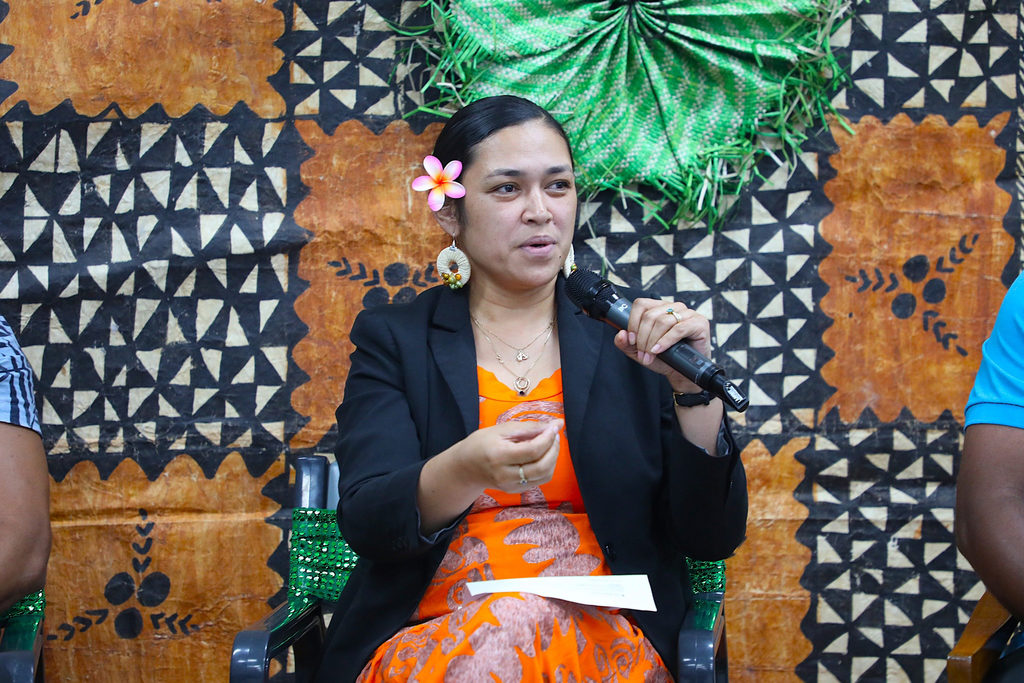PACIFIC leaders must stop treating mental health and disability support as optional or charitable services and instead embed them into law as human rights obligations.
“Pacific leaders now looking into harmonising national legislation and policies with international human rights standards,” Psychiatric Survivors Association office manager Sarah Osborne said.
“This is important because access to services, especially for people with mental health conditions, should not be something we beg for.”
Ms Osborne says support for people living with mental health conditions or disabilities is not a privilege or favour, it is a fundamental right.
“We shouldn’t be asking or pleading for support. These are not privileges, they are rights.
“Governments have a responsibility to fulfil and protect these rights.”
She warned that when mental health care, disability support, or access to essential services are treated like optional add-ons, it not only delays support but also undermines the dignity of those affected.
“Embedding these into law ensures that every person is protected, not just supported.”
She added that a human right–based approach should be the foundation of all public policy across the region.
“When they are, we stop seeing people as burdens and start recognising them as equal members of society with the same entitlements as everyone else.”
Standardise training for nursing students
FOR the first time, Fiji is standardising mental health training for nursing students.
This was revealed by St Giles Hospital director of nursing Miliakere Nasorovakawalu during a panel discussion held at the Fiji National University (FNU) as part of World Mental Health Day events last week.
Ms Nasorovakawalu said the initiative was essential to ensuring that nursing students across the country received consistent theoretical and clinical training in mental health, preparing them more effectively for communitybased care.
“For the first time, we have to standardise the clinical hours and the theoretical hours for undergraduate, bachelor and nursing students,” she said.
“It has to be from the council.”
She added that since the transition of the School of Nursing to FNU in 2010, this was the first structured effort to regulate the minimum number of hours required for mental health training.
Ms Nasorovakawalu stressed that this move was not just about curriculum reform, but also about addressing systemic gaps in mental health services at the community level.
“We need to go back to the basics. We need to go back to the community.
“If the community is going to go there, I’m expecting the Ministry of Mental Health, the Division of Awareness, they need to have a space.
“They need to have their working equipment.
If it is not, then it’s not going to be workable.”
Acknowledging the multi-sectoral nature of mental health, she emphasised that future success would depend not only on the ministry but also on collaboration across education and community development sectors.
Previously at FNU, there was no set minimum for how many classroom or clinical hours nursing students needed in mental health, but now national standards are being introduced.
Policymakers urged to rethink support systems
POLICYMAKERS are better equipped to make mental health–centric decisions if they understand that mental health begins as early as pregnancy.
St Giles Hospital senior medical officer Dr Sheetal Singh made the statement during World Mental Health Day discussions, urging ministries and government leaders to shift their perspective and planning frameworks.
“We need to give the holistic approach that is needed in mental health,” Dr Singh said.
“And I think if the mind-set changes then…”
She explained that many people, including decision-makers, often associate the onset of mental health challenges with adolescence or the pressures of adult life.
However, evidence shows that mental health can begin to be shaped in the womb.
“When we ask the public, ‘When do you think mental health starts to be affected?’ we say high school, we say work environment.
“But we really have to educate one another that mental health starts when the child is conceived in the womb,” she said.
Dr Singh noted that a pregnant woman’s environment, including her nutrition, emotional support, and daily interactions, can significantly influence the future mental health of her child.
“So I think if this is elevated more to the ministries and to the managers and the people who make the policies, who plan the budget, then they will be able to decide in a more mental health-friendly way,” she said.
She also highlighted the need for government policies across sectors to reflect the evolving evidence and realities of mental health in Fiji.
According to Dr Singh, many current policies are still too general and fail to adapt to the specific, early and long-term factors that affect mental health outcomes.
Call for task shifting in Pacific
WHILE funding remains a constant challenge across the Pacific, task shifting and community training are being seen as practical ways to expand mental health care.
This was highlighted by Fiji National University’s (FNU) Head of Psychiatry Unit, Dr Sefanaia Qaloewai, during World Mental Health Day discussions last week.
“I think one thing that we have to face every day is knowing that we don’t have enough money,” Dr Qaloewai said.
“Money is always an issue across the Pacific.”
He said that while funding constraints were a reality, they should not be a barrier to reaching those in need.
“I think the other route that we can take is try and work between what we have. I have talked a little bit about task shifting.
“Meaning, what we can provide in the hospital, we try and train people out there in the community to do something.
Some basic skills in order to pick up and refer.”
The aim, Dr Qaloewai explained, is to ensure early detection and timely referrals before individuals’ mental health deteriorates.
He also noted that preventative care remained the dominant approach in the Pacific, where raising awareness and encouraging help-seeking behaviour could be just as crucial as clinical intervention.
“So raising awareness on mental health struggles and where to go to seek help is important.”



